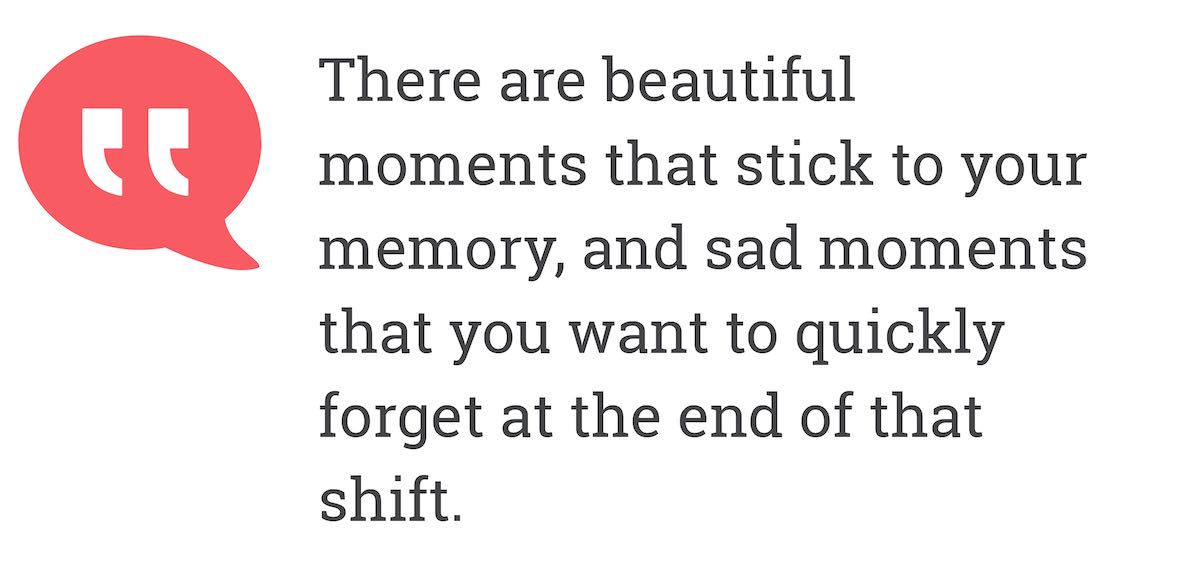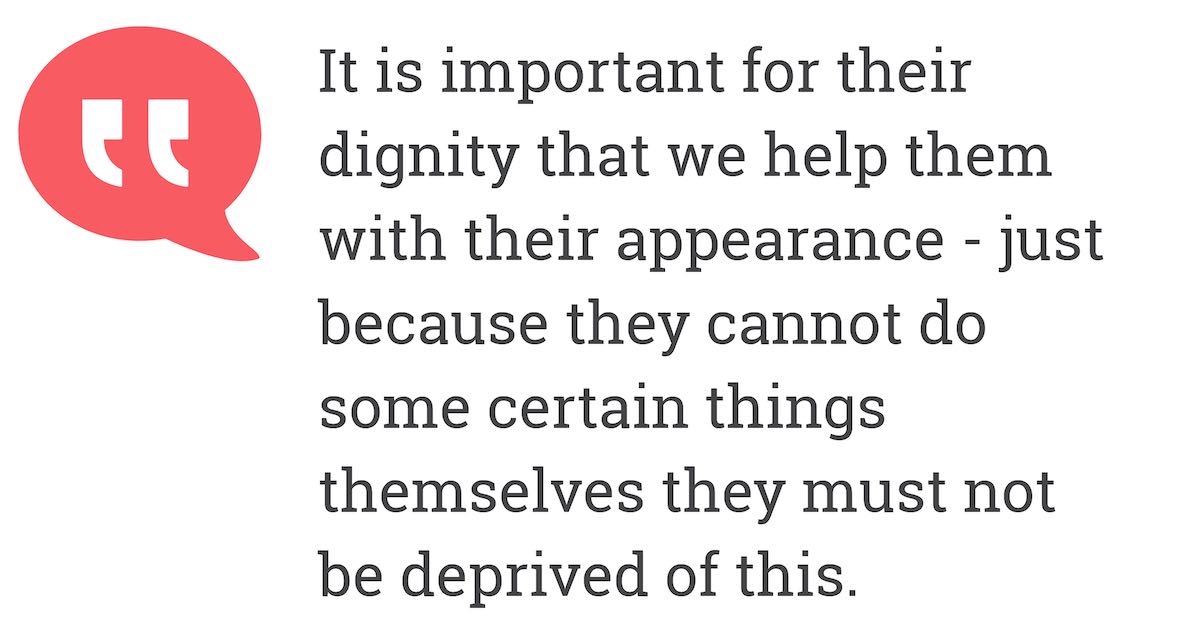 "There are beautiful moments that stick to your memory, and sad moments that you want to quickly forget at the end of that shift."
"There are beautiful moments that stick to your memory, and sad moments that you want to quickly forget at the end of that shift."What does a Healthcare Assistant do? What are the tasks? How does a typical day look? We asked Dorcas, who works as a HCA to tell us.
Topics Covered In This Article
What Is It Like To Work As A Healthcare Assistant?
Snapshot Of The Day Of A Healthcare Assistant, By Hour
The Key Tasks Of A Healthcare Assistant
Outline Of The Healthcare Assistant's Role In Residential Care And Hospitals
How Long Do We Get For Our Breaks?
What Are The Break-out Facilities Like?
How Do Night Shifts For Healthcare Assistants Compare To Day Shifts?
Who Do HCAs Escalate Matters To?
After A Day Or Night Shift As An HCA I’m Exhausted
What Is It Like To Work As A Healthcare Assistant?
A Healthcare Assistant (HCA) does not have the most glamourous role in the healthare sector, but it is vital.
It can be draining for individuals that pursue it as a career.
There is no special requisite for being a Healthcare Assistant (find out the typical entry requirements and qualifications needed to be a HCA) but what matters is having the passion to work with people of different races and caring for people from different backgrounds.
Irrespective of where you are assisting, whether a hospital or a care home, you must follow the rules and regulation of the company you are working in.
A typical day as a Healthcare Assistant can be sometimes infuriating, to be honest.
At the end of a work day, some people will say; “it was a beautiful day at work today”, “it was lovely”, etc. but that is not always completely true.
A typical day always consists of unsupervised moments, keeping track of time, being able to perform well in a team, having resilience and accuracy especially when medication is prescribed and most importantly having a good sense of humour.
As a Healthcare Assistant you must also have the 6C’s in your behaviour.
You must be self-disciplined; you must show accountability and responsibility and be ready to face any challenge that comes your way daily because every day is usually different.
Working as a Healthcare Assistant for the past 9 months has been rosy and tart.

There are beautiful moments that stick to your memory, and sad moments that you want to quickly forget at the end of that shift.
I have been in situations where I had to be resilient in order to finish the days task, alongside, I had to show the 6C’s and ensure I perform my duty and also make every individual happy.









About this contributor
Student Nurse and Healthcare Assistant
I've worked as a healthcare specialist for 6 months. I'm currently a student advocate for my Adult Nursing Cohort at the University of Northampton.
More by this contributorWant to get involved in the discussion?
Log In Subscribe to comment